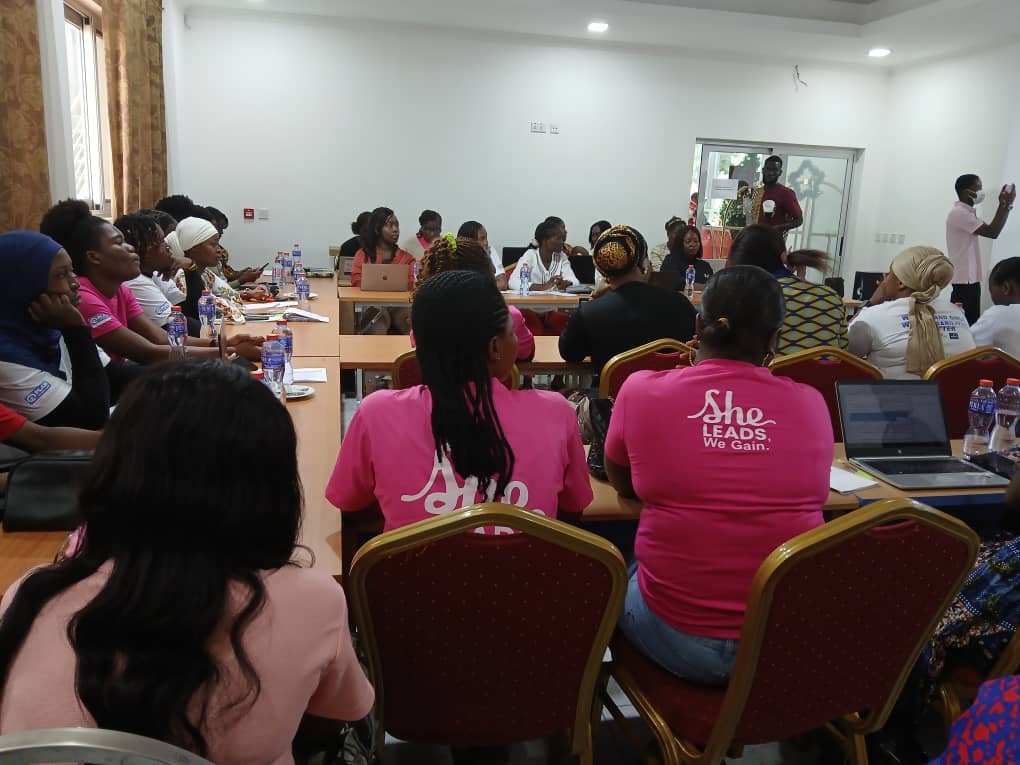By Eunice Hilda A. Mensah
Accra, Dec. 23, GNA – Ms Becky Enyonam Ahadzi, a Human Rights Lawyer, has called on young women to seek comprehensive knowledge on the Affirmative Action Law, and take advantage of it to be able to grab positions in the next government.
She said the call had become crucial due to the significant marginalisation of women in decision making at both the governance and private level.
“The fewer women in formal decision making positions, the less likely it is that the decisions made are working in favour of gender equality,” she added.
Ms Ahadzi, also the Coordinator, Affirmation Action Law Coalition, made the call at an intergenerational dialogue organised by Plan International Ghana in Accra for stakeholders to mentor young women including tertiary level graduates and students and Senior High school leavers about the relevance of and ways to grab leadership positions.
The dialogue was part of the programmes of Plan International Ghana’s “She Leads” project, which aims to empower girls and young women to take bold steps to be part and play pivotal roles at the decision making table at both institutional, local and national level.
Ghana’s current population, she said had women at 50.7 per cent, however they played little or no crucial roles in governmental appointments or positions.
“We’ve never had a female president but for the first time we have a female vice president elect in this 2024 General election. Ministerial positions have always had more men than women with women never being more than 20 per cent.
“The economic management team most of the time have just men,” she added.
Ms Ahadzi enlightening participants on the Affirmative Action Law, said it required that there be 30 per cent women at every level of decision making from now till 2026, 35 per cent from 2027 to 2028, and 50 per cent from 2029 to 2030.
Political parties, she said were to ensure an achievement of gender equity targets in participation and representation in party politics.
“I encourage you all to ask why the President Elect did not include females in his incoming administration’s Operation Recover All Loot team and advocate for females to be added,” she said.

Quoting Section 28 (a) of the Law, she said: “A person who discriminates against, intimidates or seeks to disqualify a candidate on the basis of gender commits an offence and is liable to a fine not less than 500 penalty units and not more than 1000 penalty units or imprisonment not less than six months and not more than 12 months.”
“As young ladies, you can position yourselves into opportunities by mentorship and networking, indulge in student/community leadership.
“Invest in Education: Formal and informal, thus soft skills, relational skills, public speaking and character building, have integrity,” she advised.
Ms Joyce Obenewaa Darko, Acting Project Manager, She Leads, explained that the five-year project was jointly being implemented by civil society organisations like Defence for Children, Rights and Responsibilities Initiatives, Songtaba. CARE Ghana, Hope For Future Generations, Women Aspire Network, and Erudite Women’s Empowerment Foundation among others.
The project had invested in social enterprise development, changed gender norms and influenced behavioural change especially within communities, where 73 per cent of females were completely responsible for fetching water and household chores to reduce the overburdened chores on women and girls.
Through “She Leads”, women and girls had been supported to form coalitions and been strengthened to form social movement for the rights of girls, she said.
“She Leads has built confidence, created awareness, pushed girls and women into leadership positions, helped the marginalised to build their self-esteem, and empowered them through mentorship from She Leads clubs among others,” Ms Darko noted.

Through the project, she said sanitary pad banks had also be established in some deprived schools in Wa in the Upper West Region to enable needy girls, especially those with disability to stay in school and study during their menstrual periods.
The dialogue was participated by politicians, students, activists, gender advocates, human rights lawyer, the police, and the media among others.
GNA